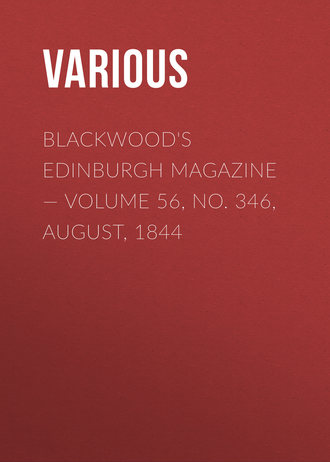Blackwood's Edinburgh Magazine — Volume 56, No. 346, August, 1844
 полная версия
полная версияBlackwood's Edinburgh Magazine — Volume 56, No. 346, August, 1844
Жанр: учебная и научная литературазарубежная старинная литературазарубежная образовательная литературазнания и навыки
Язык: Английский
Год издания: 2019
Добавлена:
Настройки чтения
Размер шрифта
Высота строк
Поля









